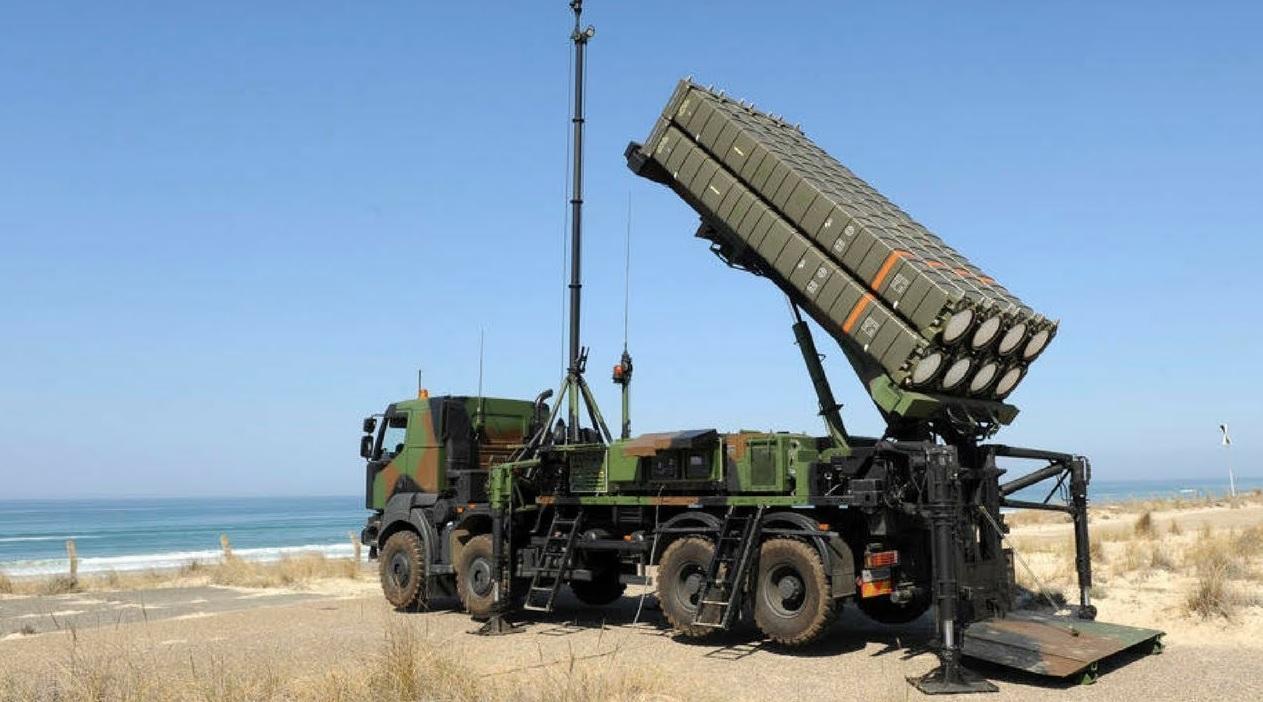
France obstructs progress in the joint anti-air missiles of Eurosam following Turkey’s “Operation Peace Spring,” Turkish Defense Industries Directorate chair İsmail Demir said on Jan. 6.
“France is in a general [negative] attitude. This attitude has impacted the project as well,” Demir told reporters at an annual review meeting with the press.
“We are at the stage of definition study now. France has a negative attitude for the next phase. It creates troubles to go one step further,” he said.
“If this attitude continues, we will proceed with the other partner [Italy],” he said. Asked if France notified a general principle for blocking defense projects with Turkey, Demir said difficulties were seen on project bases, but not a general statement on the issues.
The position of France “has no meaning for us,” Demir said, adding that this situation will not hamper Turkey’s plans.
On Eurosam program, France lays an obstacle on the issue of technology transfer, a source familiar with the talks told Hürriyet Daily News on condition of anonymity.
Ankara made an initial deal with the French-Italian consortium on July 14, 2017 to develop Turkey’s national defense systems and signed an agreement early 2018 for an 18-month-long study to determine the needs and priorities for the potential joint production of an anti-ballistic missile system. The proposed system will be a more developed version of the Eurosam’s current SAMP-T air defense systems.
Talks with the Italian-French consortium came at a moment when Turkey was under fierce pressure from the United States and other NATO countries because of its plans to procure Russia’s sophisticated S-400 anti-ballistic missile systems.
France’s parliament in October condemned Turkey’s “Operation Peace Spring” which was launched on Oct. 9 to eliminate the YPG from northern Syria east of the Euphrates River, in order to secure Turkey’s borders, aid in the “safe return” of Syrian refugees, and ensure Syria’s territorial integrity.
Elaborating on a U.S. decision to remove Turkey from F35 program due to its purchase of the Russian-made S-400 defense systems, Demir said the Turkish defense companies continue the production of F-35 components as a “goodwill gesture” since the U.S. made the statement that Turkish firms will be excluded from the supply chain of the program as of March 2020. “If we had told our companies to stop production at this time, the program would all be in a very difficult situation,” he stated.
“Unfortunately, there is no serious ground for talks with the U.S.,” on the issue, he added.
If the U.S. insists to stop production of Turkish companies for F-35s in March, then Turkey has legal rights to act against this move, he noted.
Turkey’s acquisition of the advanced Russian air-defense system prompted the Trump administration to remove Turkey from the F-35 program in July. The U.S. maintains that the system could be used by Russia to covertly obtain classified details on the jet and is incompatible with NATO systems. Turkey, however, counters that the S-400 would not be integrated into NATO systems and would not pose a threat to the alliance.
Ankara received its first Russian S-400 missiles in July. The delivery of the first battery was completed on July 25. The second batch of equipment of the S-400 was received on Aug. 27.
The installment and training of the first batch of S-400 systems will be finalized in April, Demir also said.
Ankara and Moscow are still in talks for a second fleet of S-400s since the new purchase will require technology transfer, joint production and details for friend and foe system, he added.
Russia proposed to sell SU-35 aircraft after the U.S. announced to remove Turkey from the F-35 program.
Stressing that it was a proposal came from Russia, Ankara has been considering the offer, Demir said. He underlined that there was no “concrete” step came yet after the proposal, since the evaluation is crucial for Turkey as the purchase would bring a series of “changes in parameters” in Turkish defense system, Demir stated. “We need to further discuss it,” he said.
Demir also said Turkey’s production program for its first new-generation main battle tank, the Altay, was facing delays. The 18-month period did not start for Turkey’s indigenous battle tank Altay because they could not get a power pack/engine from the foreign procurement yet, he said.